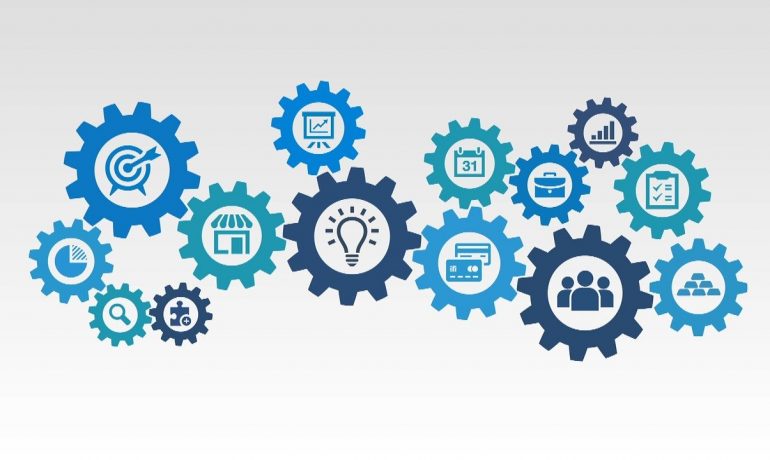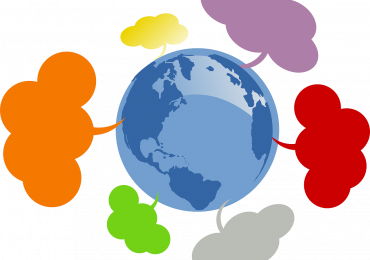Following the recent ESPAS (European Strategy and Policy Analysis System) Conference on 17-18 November 2022 we reflected on what we’d heard. Here are our ten takeways.
The Old Order Changeth
- We have reached the end of the “New World Order” after 30 years – one senior European Commission delegate wistfully mused that they may prove to have been the “best 30 years of our lives”. We now have a Bipolar Europe (and a multipolar world). Bipolar Europe divides between the West and Centre, where individual rights and freedoms take precedence, and the East, where collectivism trumps the rights of the individual. The borderlands between are actual (Ukraine) or potential (Belarus, Moldova, the former Warsaw Pact countries) conflict zones. Everything can be “weaponised”: fuel, food, minerals, people/refugees.
- Europe is greatly diminished as a global power. It relies on NATO for its defence – and for NATO read America. Although Europe is saying it will take steps to build up its own defences, it’s a long way off being a military power. This is a major risk. American attention could shift: an “America First” President might be elected. A conflict in the Indo-Pacific zone would draw American attention and resources away from Europe (subliminal message: “Asia now matters more than you do”).
- Europe should have seen this coming. The signs were there in 2014, when Russia seized Crimea and attacked the Donbass; they were there in 2008, when Russia attacked Georgia; they were there in 2007, when Putin said explicitly that the post-Cold War settlement was not working for Russia. NATO took notice after 2014, and began arming and training the Ukrainians. European politicians did nothing effective until February 2022. Oh, and since the invasion, Europe has paid Russia 100 Bn euros, mostly for oil and gas. Effectively we have paid for Russia’s war – at least this year – because we ignored the clear signals from the Kremlin and on the ground in Ukraine.
- Whilst Europe was slow to act, since the invasion last February, it has shown impressive solidarity, and a consensus that Russia must be defeated. But there may be weak links in the chain, especially the German Government, which has been a reluctant supporter, and whose Chancellor recently signalled that he would not support any sanctions against China in the event of a similar attack against its neighbours. Also, in being resolved to defeat Russia, it is important to understand that what would happen in Russia afterwards is anyone’s guess: another risk.
- The new Cold War extends to communications: fake news (eg Covid and vaccines), conspiracies (“the West started the war”), and use of online communications by repressive regimes to intimidate and silence enemies and dissidents in other countries (eg recent threats against Iranians in the UK). The West needs to get its act together. Russia is making all the running, and China is catching up, and using its wealth to influence communications outlets in other countries – eg taking Africans to China for communications and media training.
Climate Presses in on Us
- Don’t forget climate! – as one delegate said, “we are walking when we should be sprinting”. Another delegate (guess where in Europe he comes from) said that we need to be planning now to evacuate entire coastal regions, as sea levels rise. Europe talks a good game on decarbonisation, but is performing poorly in some areas: in developing green hydrogen it lags behind other regions. Big hydrogen producers – such as Egypt – express frustration that they cannot sell to Europe, which originally encouraged them to develop their hydrogen industries. Asia is moving much faster. In nuclear, the US, Korea, China and Russia are all developing modern nuclear power generators; Europe isn’t. Putin’s War is an added incentive to reduce Europe’s reliance on fossil fuels and on imports of raw materials and manufactures. And Putin apart, Saudi Arabia, Qatar etc may be allies (although that may be changing), but they are not exactly “friends”.
Friendshoring
- Which leads us on to trade. The “New World Order” put the emphasis on cheapness. The entry of China into world trade was deflationary for 20 years. Now, security and environmental considerations take precedence. Europe, the US and Japan are all investing in manufacture of semiconductors – China controlled 80% of the entire global production: Europe aims to increase its share from 5% to 20%. This will be inflationary. The big buzzword from the Conference was “Friendshoring”: concentrating trade among allies, and reducing reliance on producers we cannot trust. It is important to note that there isn’t always a choice – certain raw materials are effectively monopolies or at least oligopolies, eg copper or cobalt. Another big risk there. And much of the World’s oil and gas comes from countries which do not share Western values….
Making New Friends
- …. Ah yes, friendship and values. Social research in Europe confirms what we probably all perceive: that there is growing distrust of politicians, and disillusionment with politics and capitalism – especially among younger people. But at the same time, there is increasing support for “emancipatory values” – equal rights under the law, non-discriminatory practices, freedom to be whom we choose to be – again especially among younger people. This may also appeal to younger people in other regions: think of the young Iranians, the young Russians who have fled from Putin’s War, the young Chinese who have opted for “tang ping” (laying flat), and who refuse to work 16 hours a day and have children. It’s a potentially intriguing second front in the propaganda Cold War.
- It’s intriguing also because there is a Gulf between the West and the rest. One of Europe’s “strengths” has been as a regulator – a prime mover in the rules-based apparatus underpinning the New World Order, which is now in decline. Repressive regimes obviously reject Europe’s traditional values, and it’s clear that other regions are sceptical – we stand accused of cutting down our own forests, but telling others not to; and stripping other Regions of natural resources whilst preaching environmentalism. There is a gulf in trust, which in effect works in favour of unfriendly countries and blocs……
- ……. So the final takeaway from ESPAS, is that it needs to be less Atlanticist, and more global: it needs more input from other Regions – Africa, Asia, Latin America. It also needs to up its game on science, but that’s for another day.
Written by David Lye, SAMI Fellow
The views expressed are those of the author(s) and not necessarily of SAMI Consulting.
Achieve more by understanding what the future may bring. We bring skills developed over thirty years of international and national projects to create actionable, transformative strategy. Futures, foresight and scenario planning to make robust decisions in uncertain times. Find out more at www.samiconsulting.co.uk.
If you enjoyed this blog from SAMI Consulting, the home of scenario planning, please sign up for our monthly newsletter at newreader@samiconsulting.co.uk and/or browse our website at https://www.samiconsulting.co.uk
Featured image by ar130405 from Pixabay



[…] World Order of the post-Cold War Age, as previously noted in our November blog, which reported on the discussion of the same issues at ESPAS (The European Strategy & Policy Analysis […]